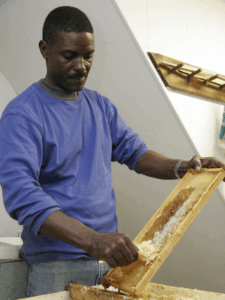The mayors of 11 U.S. cities, including Los Angeles and Denver, agreed Friday to set up pilot programs offering reparations to some of their communities’ Black residents, offering a jolt of momentum to a nationwide push to address the stubborn residual impacts of slavery and segregation through direct cash payments to Black Americans.
KEY FACTS
Mayors Organized for Reparations and Equity includes big city leaders like L.A.’s Eric Garcetti and Austin’s Steve Adler, as well as mayors of smaller communities like Asheville, N.C., Tullahassee, Okla., and Providence, R.I.
The 11 mayors promised to set up advisory panels tasked with designing reparations programs for their cities and, once funding is in order, offer up test payments to as-yet undefined groups of Black residents.
The mayors framed this initiative as a test case for how a larger nationwide reparations program might work, rather than a conclusive effort: “Cities will never have the funds to pay for reparations on our own,” Garcetti said in a Friday press conference.
Some members of the coalition have endorsed reparations in the past, including Garcetti and Providence Mayor Jorge Elorza, and Asheville’s City Council promised to back special homeownership and business programs for Black residents last year.
WHAT WE DON’T KNOW
The program hasn’t offered any specifics on the size, scope or timing of reparations payments. Funding sources also haven’t been identified, though mayors like Garcettisuggested the effort could be backed by both public and private money.
KEY BACKGROUND
The idea of reparations has gained traction in recent years, with politicians and activists pitching direct payments to Black Americans as way of repairing the economic damage and wealth disparities wrought by slavery and systemic housing, employment and education discrimination. Democrats in the U.S. House are pushing a bill to study reparations, buoyed by support from President Joe Biden, and California created a task force to weigh the idea last year. Plus, a few locales have moved beyond studies: Asheville and Evanston, Ill., have launched modest reparation programs in the last year.
CHIEF CRITIC
The idea remains controversial. Senate Minority Leader Mitch McConnell (R-Ky.) told reporters in 2019 “it would be pretty hard to figure out who to compensate,” noting that no living Americans had a direct hand in slavery.




